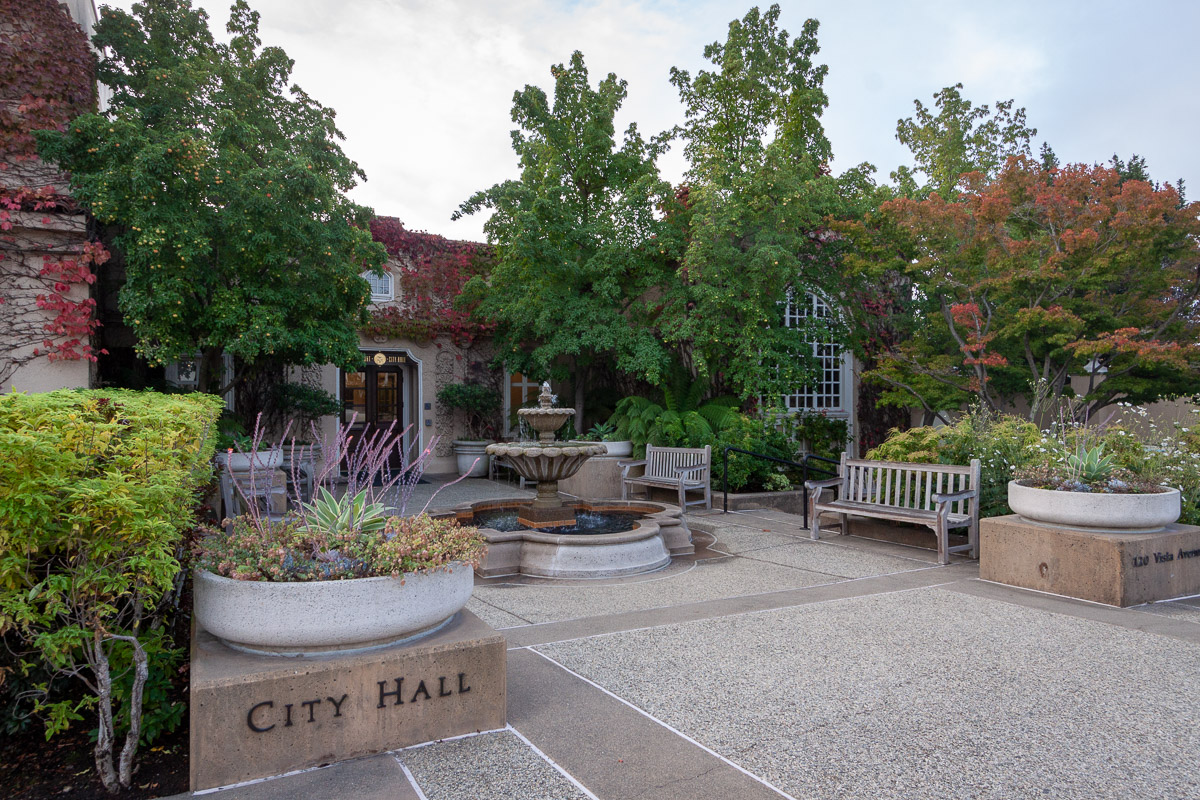Calling their action a significant step in protecting both city workers and the general Piedmont populace, the City Council on Monday approved the framework of a COVID-19 vaccination mandate requiring all city employees to either show proof of vaccination or submit to regular coronavirus testing.
The council voted 5-0 to approve a plan to require all employees not documented as fully vaccinated must regularly test for COVID-19 (though no specific interval has been determined yet). There is an allowance for “reasonable accommodation” of employees who can show a legitimate medical condition or restriction in which a COVID vaccine could prove harmful, or who can claim a “sincerely held religious belief” that a vaccine would go against.
City Administrator Sara Lillevand stressed that what was approved Monday night is not a “policy,” per se, but rather a framework to which more detailed requirements and criteria will be added later, shaped in part by agreements reached with the city’s employee unions.
The council approved requiring all city employees and job applicants to report their vaccination status to the human resources department, including what type of vaccine was received, date of the first and second doses and show proof of vaccination.
The state Division of Occupational Safety and Health (Cal/OSHA) requires employers to take specific measures to protect employees from COVID-19, including enforcing masking and quarantine requirements and offering coronavirus testing.
“Requiring city workers to be vaccinated and the continued implementation of safety measures will help reduce the further spread of the virus in Piedmont,” according to a city staff report. “Unvaccinated workers are at greater risk of contracting and spreading COVID-19 to other workers and the public that depends on city services.”
“City employees,” as defined under this city policy, include full-time, part-time and “as needed” workers, as well as city officers, volunteers, and interns, Lillevand said. When Councilwoman Jen Cavenaugh asked whether employees having a hard time finding time or transportation to get a vaccine would get help from the city, Lillevand said the city would indeed help them get vaccinated in whatever manner possible.
Mayor Teddy Gray King, during the council comment period near the end of the Aug. 16 meeting, told Lillevand she wanted a mandatory vaccination policy for city workers, pending approval of the vaccine by the Centers for Disease Control. The first of the three American COVID-19 vaccines, from Pfizer-BioNTech, was formally approved by the FDA a week later.
Vice Mayor Tim Rood, who is a Planning Division manager with the City of San Jose, said that city has implemented a two-stage vaccination policy. He said the policy is working reasonably well so far, and that Piedmont and other cities have a “moral imperative” to do whatever they can to slow the spread of COVID. Other cities — Oakland, Berkeley, Walnut Creek and Antioch, among others, along with Contra Costa County — are in the process of enacting similar mandates.
There were no callers in to Monday night’s meeting either in support of, or opposing, the vaccine mandate. The City Council received some pushback before Monday night’s meeting, though, including from the Piedmont Fire Fighters Association Local 2683, and its president, Brian Gidney. He said the union local opposes any vaccine mandate.
Also objecting to such a mandate was 27-year Piedmont firefighter Alan Grace. In a letter to the council, Grace said “people will be forced to choose between their jobs and their convictions” if a vaccine mandate is approved. He also submitted to the council more than 70 pages of research links, studies from medical experts claiming that COVID-19 vaccines have negative side effects and can trigger other viruses and even cause cancer. Grace also submitted a copy of the U.S. Constitution to the council.
Council members, including Cavenaugh, acknowledged those firefighters’ concerns and those of others with heartfelt objections to a mandatory vaccine mandate. The city’s stance was carefully considered, she said. But she and others also said minimizing the coronavirus is too important not to act on.
“It’s unfortunate we can’t make everybody happy with this decision,” Cavenaugh said.
Added Councilwoman Conna McCarthy, “I’m comfortable and appreciative that this is in front of us tonight.”
(Editor’s note: An earlier version of this story incorrectly said the CDC gave formal approval for the Pfizer vaccine; it was the FDA.)
